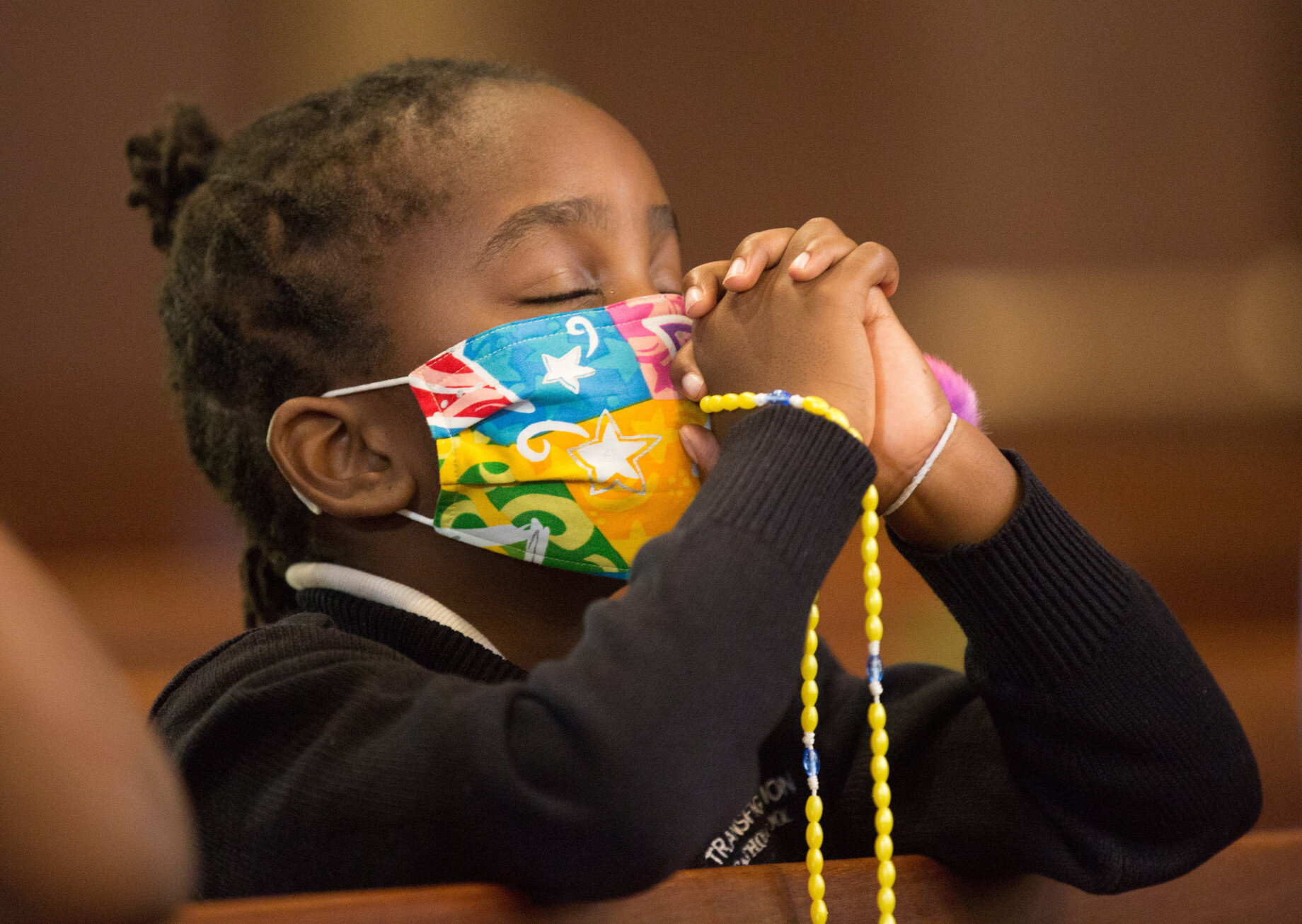Program teaches children how to protect themselves from abuse
Children and teens face challenges today that can be seen and unseen. The phrase “stranger danger” is still a good concept to teach young children, but what about the strangers they cannot see? Those individuals that try to take advantage of children on the internet and social media platforms can also be difficult to identify.
The Archdiocese of Newark’s Department for the Protection of the Faithful is ready to help educate children and teens and give them the tools to understand the dangers of online predators, as well as how to keep themselves safe “IRL” (In Real Life). Every year, the department offers Empowering God’s Children courses to teach youth in the Archdiocesan schools how to identify and stop inappropriate behavior.
By doing so, it hopes to inspire boys and girls to trust their instincts about potential abusers and seek help if they are being harmed — in their relationships, interactions with strangers, and possibly well-known and respected adults in their lives.
“No one has the right to make them feel uncomfortable,” Director Karen Clark said, adding the classes also train students not to be afraid of alerting people to abuse. “They will be believed if they tell someone.”
The Empowering God’s Children curriculum covers a variety of topics designed to give young people the tools they need to protect themselves from those who might harm them. Lessons include the importance of recognizing personal boundaries and how one should react if confused by someone’s touch. The courses also teach children and teens about the behaviors that indicate an abuser is grooming them. To address the internet’s prevalence in young people’s lives, the program makes sure to warn students about the dangers of communicating with strangers online as well.
These lessons begin when students are in kindergarten and continue until they graduate from high school. The Empowering God’s Children program is broken up into four grade-level groups — K-2, 3-5, 6-8 and 9-12 — with each group receiving age-appropriate lessons within the same curriculum. Everyone learns about boundaries, for example, but kindergartners are taught simple concepts like physical boundaries while older teens take classes on more complex themes like emotional boundaries in relationships.
And while some may argue against exposing young children to any form of abuse awareness training until they are more mature, the Department for the Protection of the Faithful believes it’s crucial to start educating boys and girls early so they grow up understanding how to avoid abusive situations.
Plus, as safe environment compliance officer AnnMarie Caliguire pointed out, having conversations with children about issues like unsafe touching shows them it’s OK to speak about sensitive subjects. Then, if a young person is being abused, that child will feel comfortable discussing what’s going on with an adult who could intervene.
“No age is too young to talk to kids about safety,” Caliguire said. “Even for adults, it’s hard for us to disclose when abuse happens. So how much more difficult is it for children to disclose what’s happening if they’re not taught they can talk about it?”
But even if a young person feels comfortable discussing abuse, communication can still be a problem. Caliguire said both children and teenagers often lack the language to describe what they’re feeling — like if someone gives them a bad vibe, but they can’t explain why — which prevents them from speaking out.
To counteract this, Archdiocese employees, clergy, and volunteers are trained through the Virtus Protecting God’s Children program to help children label emotions they can’t easily put into words. For instance, Caliguire said a “Squidward feeling” may be the word that a child chooses in a discussion with their parent while watching SpongeBob Square Pants. Whatever word the child chooses is the word that adults should expect to hear as they describe the negative emotions they get after encountering a creepy adult.
It might sound silly, but children will be more likely to report a potential abuser if they can simply liken the person to an unpleasant character from a popular cartoon instead of explaining why someone makes them feel uneasy.
“You want children to have a language where they feel comfortable talking with you about things that are happening to them,” Caliguire said. “Having a key word or catchphrase they can use is so important for kids.”
Every lesson Empowering God’s Children teaches is important, which is why the department is expanding the program’s reach. Starting this fall, the Empowering God’s Children curriculum will be added to the Archdiocese’s catechetical classes so public school children will be taught to protect themselves. All parents also have the option of teaching their children the courses at home if they’re uncomfortable with someone else discussing abuse awareness with their sons and daughters.
Ultimately, the goal is to educate as many youth as possible through Empowering God’s Children. As Caliguire pointed out, one of the best ways to protect young people is to make them advocates for themselves.
“It’s not just on adults to keep kids safe,” Caliguire said. “Children should feel empowered to protect themselves.”
For more information on the Department for the Protection of the Faithful and its Empowering God’s Children program, visit https://www.rcan.org/offices-and-ministries/child-youth-protection.



